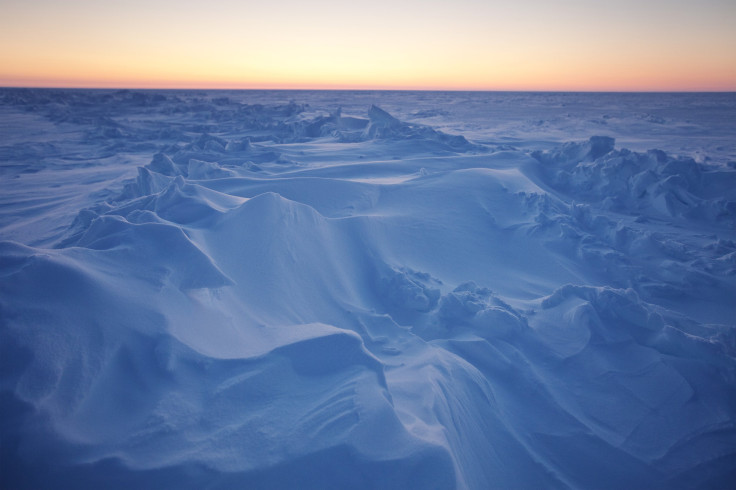Newly Discovered Ancient Antarctic Ice May Reveal Earth's Past Climate Conditions, Scientists Say

Scientists believe they have discovered a region of Antarctic ice that may date back 1.5 million years.
A team of geoscientists identified an area of ice in the East Antarctic Ice Sheet. If the team has indeed pinpointed the correct region, they will be able to analyze ice about double the age of the oldest ice cores yet discovered -- which were 800,000 years old. That geological point falls within a period from 1.2 million to 900,000 years ago that is known as the Mid-Pleistocene Transition, reports Discovery News.
“The Mid-Pleistocene Transition is a most important and enigmatic time interval in the more recent climate history of our planet,” said the study's lead author, Hubertus Fischer of the University of Bern, Switzerland, in a press release. The new study appears in the journal Climate of the Past.
Using ancient air bubbles trapped inside the ice, the scientist measured the levels of carbon dioxide from that period. The transition marked a point when the warming and cooling cycles of Earth experienced a significant change, reports the Sydney Morning Herald. The Earth went from experiencing changes in warming and cooling cycles every 41,000 years to these cycles occurring around every 100,000 years. Remains like marine sediments offer an estimate of the carbon dioxide levels during that period. But the paper details that “an ultimate answer about the role of greenhouse gas climate forcing can only be derived from the atmospheric record archived in an Antarctic ice core covering this time interval.”
To reach the 1.5 million-year-old sample that would allow scientists to analyze those levels, drills will need to extract a 2.4 – 3.2 kilometer-long (1.5 – 2 mile) ice core from the region. Such a deep drilling project could begin "within the within the next three to five years,” Fischer said. “This time would also be needed to plan the drilling logistically and create the funding for such an exciting large-scale international research project, which would cost around 50 million euros.”
© Copyright IBTimes 2024. All rights reserved.






















